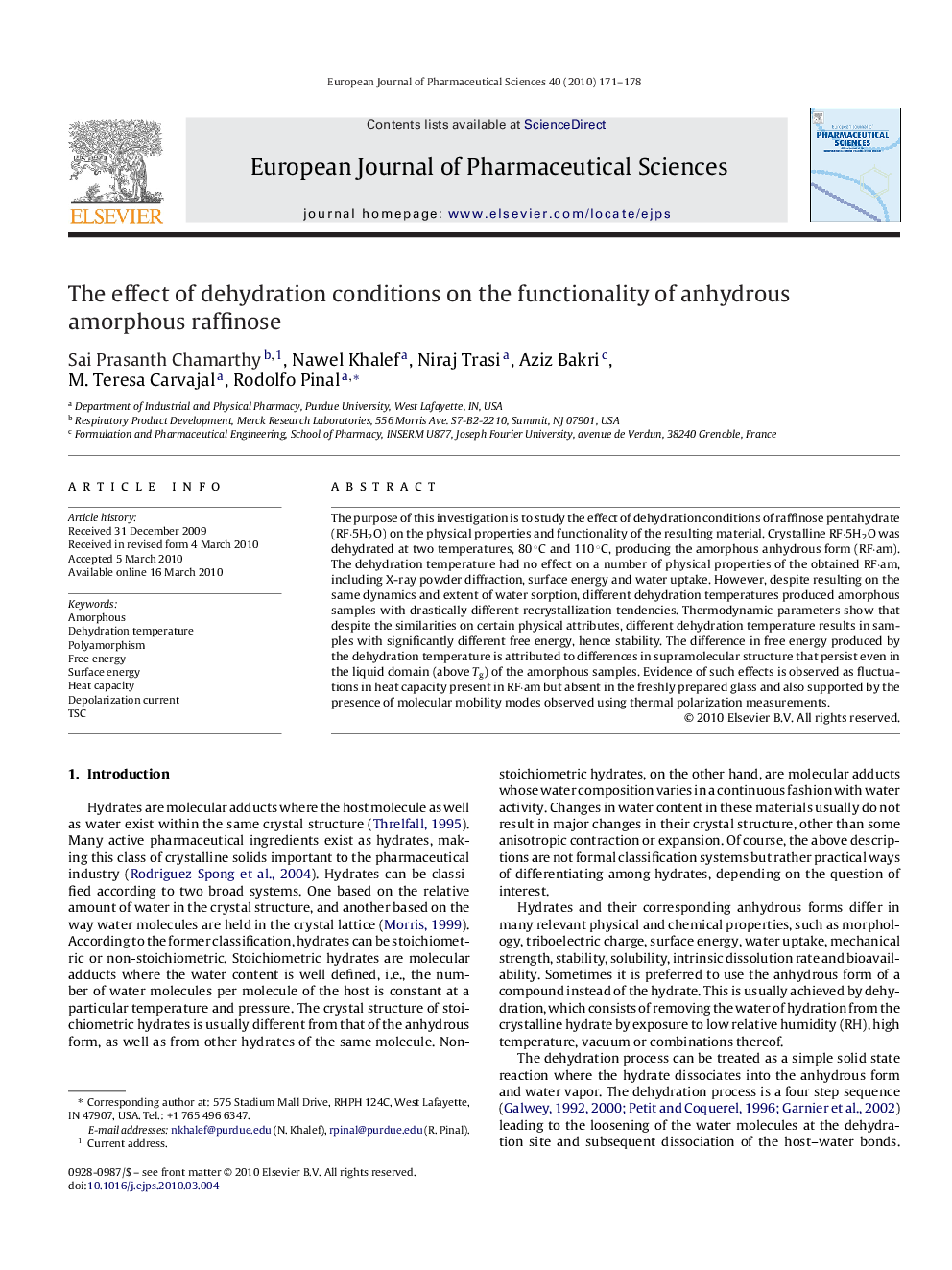| Article ID | Journal | Published Year | Pages | File Type |
|---|---|---|---|---|
| 2482083 | European Journal of Pharmaceutical Sciences | 2010 | 8 Pages |
The purpose of this investigation is to study the effect of dehydration conditions of raffinose pentahydrate (RF·5H2O) on the physical properties and functionality of the resulting material. Crystalline RF·5H2O was dehydrated at two temperatures, 80 °C and 110 °C, producing the amorphous anhydrous form (RF·am). The dehydration temperature had no effect on a number of physical properties of the obtained RF·am, including X-ray powder diffraction, surface energy and water uptake. However, despite resulting on the same dynamics and extent of water sorption, different dehydration temperatures produced amorphous samples with drastically different recrystallization tendencies. Thermodynamic parameters show that despite the similarities on certain physical attributes, different dehydration temperature results in samples with significantly different free energy, hence stability. The difference in free energy produced by the dehydration temperature is attributed to differences in supramolecular structure that persist even in the liquid domain (above Tg) of the amorphous samples. Evidence of such effects is observed as fluctuations in heat capacity present in RF·am but absent in the freshly prepared glass and also supported by the presence of molecular mobility modes observed using thermal polarization measurements.
